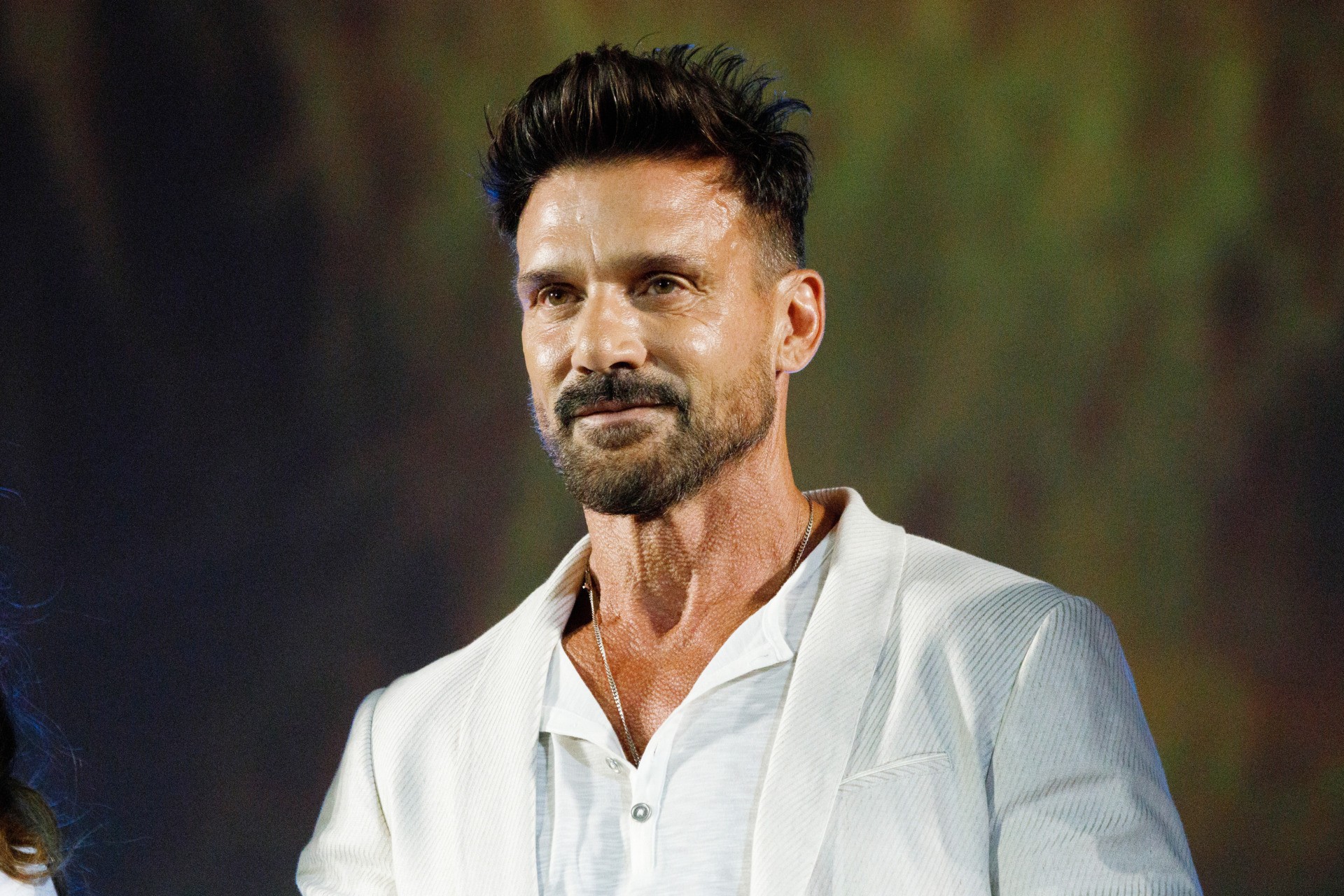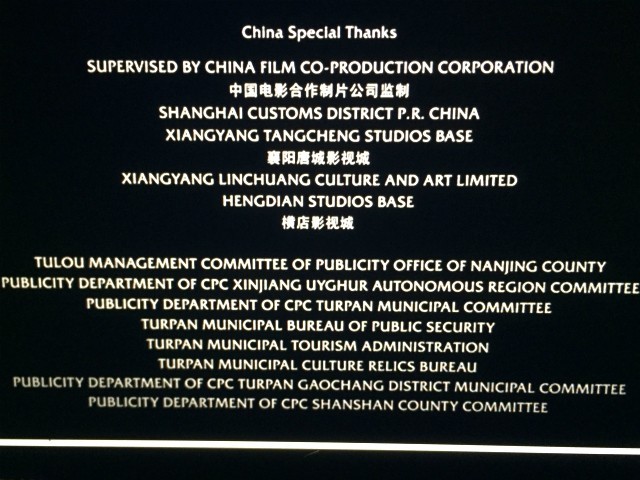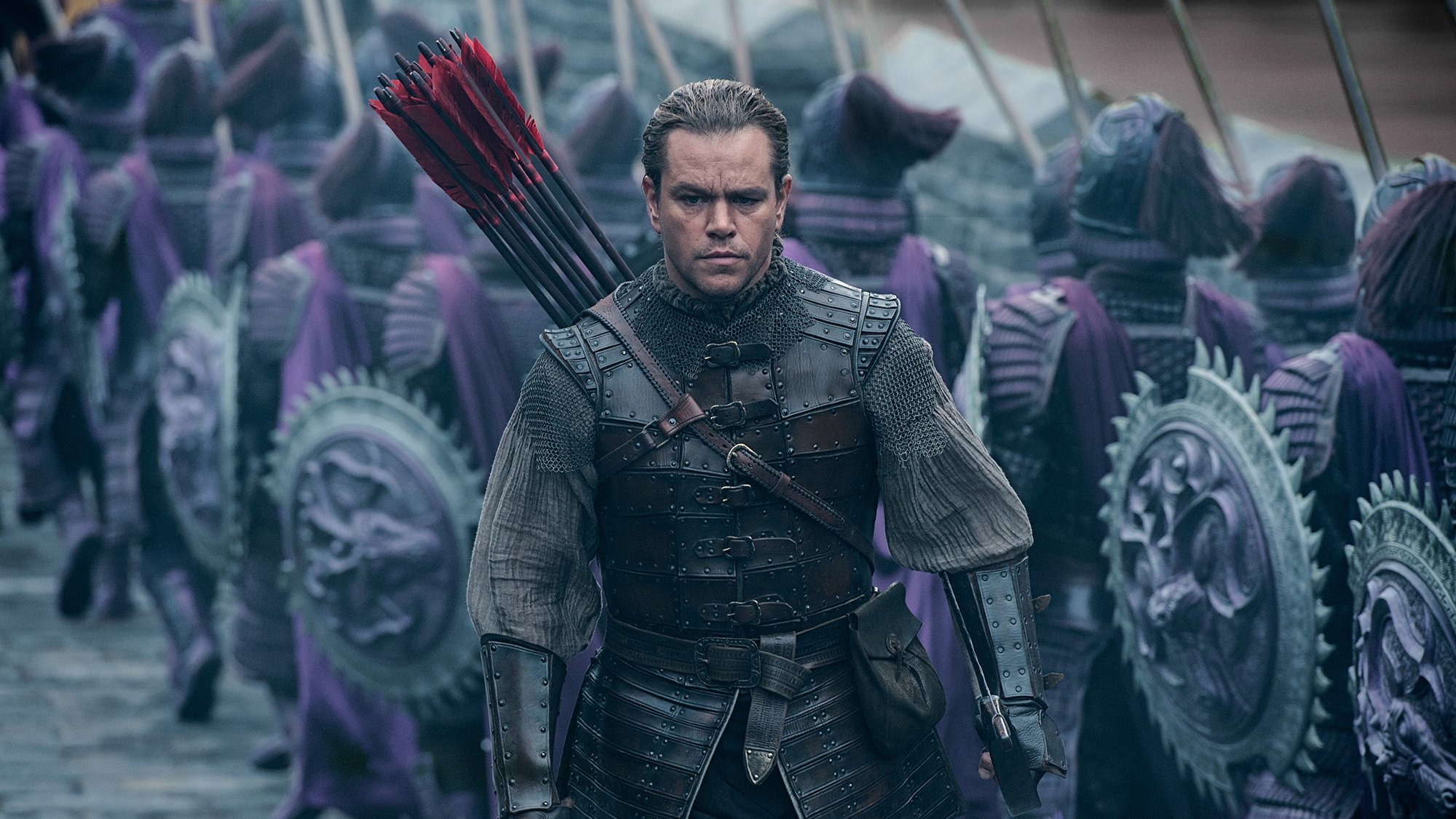The rapid decline of Hollywood’s share of the Chinese film market – the largest in the world as of 2020, when the Chinese coronavirus pandemic shut American cinemas and productions down – has created a small but growing market of Western actors landing big roles as the villains in communist propaganda movies.
Hollywood studios have spent much of the past decade attempting to court Chinese audiences, which necessitates groveling to the Chinese Communist Party lest their productions get censored or simply outlawed in the country. The American entertainment establishment has tried everything – from spending heavily on low-intellect and inoffensive comic book movies to erasing even a suspected mention of ethnic groups the Communist Party hates, like the Taiwanese or Tibetans.
Disney filmed Mulan in a region dotted with concentration camps and thanked the police officers committing the genocide almost within sight of its cameras.
Los Angeles Lakers star LeBron James defended police brutality in Hong Kong in anticipation of the release of Space Jam: A New Legacy, a film first and foremost marketed to China.
Watch below:
LeBron says he believes Rockets GM Daryl Morey wasn’t educated when he spoke about Hong Kong and that his tweet could have hurt a lot of people, including financially pic.twitter.com/UMj71DPQH7
— Darren Rovell (@darrenrovell) October 15, 2019
Hollywood has also attempted to loan China its biggest names for projects appearing superficially Chinese, most notably the 2016 Chinese period piece The Great Wall, directed by legendary Chinese filmmaker Zhang Yimou but incoherently starring Matt Damon and filmed in English. When the film came out, top American stars flocking to Chinese movies appeared to be the trend of the future.
“China wants to export its films to the world — especially the U.S. — as an achievement of its soft power, but no one wants to watch its films,” producer and director Peter Tsi told Variety at the time. “On the other hand, Hollywood is excited about getting into the China market, but the only way to achieve that is through co-production, and they must find subject matter that can resonate with the Chinese audience.”
“The only way to make it work is to arbitrarily cast a Hollywood actor or two so that U.S. distributors and exhibitors might consider screening them,” Tsi insisted.
For Hollywood as an industry, the shameless pandering has failed. The Space Jam sequel, as Hollywood Reporter noted this week, was a flop. The Great Wall was such a commercial disaster in both America and China that Matt Damon is still defending his participation in it five years later. As of 2021, Hollywood makes up less than ten percent of China’s box office share. Chinese government media outlets regularly mock American establishment movie studios as ham-fisted in their attempts to attract Chinese audiences; Hollywood has become a punchline.
“If Hollywood still cannot really respect and understand Chinese culture and just randomly mixes some Chinese elements into their films, it will lose a large amount of its fans in China,” the Chinese propaganda outlet Global Times warned in April.
While the cream of the Hollywood crop fails to find its footing in China, a growing number of actors who struggled with only bit roles at home have found a loophole to China’s seemingly impenetrable barrier for Western actors: playing American villains in propaganda films.
The Chinese communist propaganda movie industry is booming. The Communist Party has clearly, and explicitly, prioritized spending on making high-budget action films featuring despicable American enemies, and it has paid off: the most expensive Chinese film of all time is also the highest-grossing film in the world for 2021 and the highest-grossing film in Chinese cinema history.
The Battle at Lake Changjin tells the story of China’s involvement in the Korean War. In reality, China helped, through a bloody intervention, create one of the world’s most repressive regimes through support for Kim Il-sung in North Korea. Thanks to China, it is illegal now in North Korea not to worship Kim and his progeny as gods. In The Battle at Lake Changjin, however, China’s “people’s volunteers” courageously organized a resistance to the true repressors: the American forces in Korea to help the South fight off the communists.
Watch below:
To depict China’s alleged triumphant defeat of the evil Americans, Chinese film studios need people to play evil Americans. Among the top Western talent in Lake Changjin are such unknowns in Hollywood as James Filbird – whose only film credits are playing General Douglas MacArthur in Lake Changjin and its currently-in-production sequel, Water Gate Bridge – and Nathaniel Boyd, whose credits also include a Chinese movie glorifying the fight against Imperial Japan during World War II.
Kevin Lee, a British actor who abandoned Los Angeles for Beijing and never looked back, also stars in the film as Colonel Allan MacLean, the head of the U.S. Army division the communists defeat in the movie.
“China has a fantastic platform to gain valuable acting experience, build a solid acting reel, and move on where acting is taken more seriously,” Lee said in a 2018 interview. “Plenty of opportunity here, but to make a name for yourself in China as a westerner is no easy feat and no foreigner has yet to break this space.”
Prior to Lake Changjin, Lee starred in Wolf Warrior, which has become a classic Chinese propaganda movie because its sequel was the highest-grossing Chinese movie of all time prior to Lake Changjin. Lee has also starred in several other Chinese action movies, notably Te Jing Dui (S.W.A.T.), a movie glorifying Chinese police officers at the height of the Hong Kong police repression wave against pro-democracy protesters.
Like Lake Changjin, the Wolf Warrior series relies on American villains to energize a Chinese communist audience and has thus attracted significant Western, for lack of a better word, talent. Perhaps no Hollywood actor has taken advantage of the opportunity to make Americans look bad in Chinese propaganda films more than Frank Grillo, who enjoyed a long career of bit roles in police procedurals or background jobs in war movies like Zero Dark Thirty before playing the lead villain, the callous American mercenary “Big Daddy,” in Wolf Warrior 2.
Watch below:
Wolf Warrior 2 is not a subtle film. Its tagline is “Whoever offends China will be hunted down no matter how far away they are.” Grillo’s “Big Daddy” is depicted as the leader of a group of Americans thirsty for the blood of civilians for no clear reason other than their nature – Chinese state media regularly claims European people have a genetic disposition towards violence.
In 2017, when the movie came out, Grillo explained in an interview that the film was interesting to him because, at the time, “everyone in Hollywood [was] trying to get into the Chinese market, or has tried and failed, or is already in co-productions.”
“There’s a consciousness that has been developing in China. Maybe it started in 2008 when the country started opening to the world and consumerism became a bigger part of the culture,” Grillo said, echoing Chinese state propaganda. “People say this movie is nationalistic and it’s propaganda — and in a sense, it is. But this pride in China is real, and the audience wants to believe that being Chinese means something special.”

Frank Grillo is seen on stage during the Awards Winner Ceremony of the 74th Locarno Film Festival on August 11, 2021 in Locarno, Switzerland. (Rosdiana Ciaravolo/Getty Images)
In the same interview, Grillo denounced America as “a mess” and “a circus” for having recently voted for President Donald Trump.
Grillo and actors like Kevin Lee appear to have gotten on at the ground floor of a growing trend, especially as Hollywood finds it can no longer compete in China and has compromised its storytelling ability to such a degree that American audiences aren’t interested, either. In 2018, Hollywood Reporter identified Grillo, among others, as signs that “the trade winds of the global film industry have begun to blow the other way.”
“Now, nearly every upcoming big-budget Chinese film boasts some Hollywood-pedigreed professional or technical expertise. In some cases, the international involvement is considerable,” the magazine noted at the time. Three years later, with Chinese films soundly defeating Hollywood’s anemic content with consumers, the move east to enable an industry in which citizens may see their “social credit” scores fall if they do not rush to watch a “patriotic” movie is even apparent.



COMMENTS
Please let us know if you're having issues with commenting.